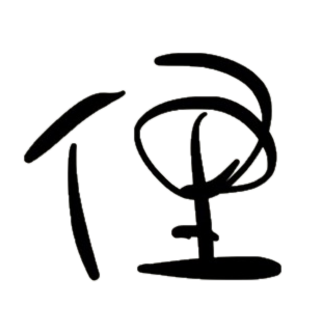Céline Papion
Céline Papion (b.1982) is a French cellist based in Stuttgart. Through encounters and artistic commitments, she is of course a cellist, an interpreter of contemporary and early music, but also a theater performer, a concert designer and an artistic director. Her work and commitment in the field of New Music was awarded the "International Bodensee-Konferenz" prize for the interpretation of contemporary music in 2019. She has been selected for artist residencies at the Borneo Laboratory in Kuching, Malaysia in 2017 and at the Treasure Hill Artist village in Taipei, Taiwan in 2020-21.
She works in close collaboration with composers such as Toshio Hosokawa, Joseph Michaels, Jesse Ronneau, Steffen Krebber, Oliver S. Frick and Yiran Zhao, contemporary artists such as visual artists Aldo van den Broek and Adeline Fonknechten, video artists Peter Welz, Hanae Utamura and Deema Shahin, lighting artist Kurt L. Theinert, actress Franziska Schmitz, stage directors Sebastian Bauer and Anna Drescher.
She is guest at festivals and stages such as the Theater Rampe and Junges Ensemble Stuttgart, the Sinuston Festival Magdeburg, Musik der Jahrhunderte Stuttgart, Unerhörte Musik im BKA in Berlin, the "Musiktheater Formen" at Gare du Nord in Basel (Switzerland), the Besançon International Festival (France), the MA Festival/Flanders Festival Bruges (Belgium), the Music Series at NUI Maynooth and UCC Cork (Ireland) and the Música Hoje Bienale Curitiba (Brazil).
Weblink: https://celinepapion.net/
Céline’s Reflection
The composer-performer relationship has evolved enormously over the last few decades: I have more and more experienced working in Pairs, composers performing their own pieces, or performers who are involved in the creation of a piece from its conception. The guiding principle becomes "get your hands dirty”! Very often the result appears to be very personal because it is nourished by the aesthetics and commitment of each person. To tell the truth, for me it is one of the great opportunities of contemporary music and I have been favouring this kind of work for a few years now. So when I-lly asked me to participate in her project “Yours Mine” I was immediately enthusiastic.
The structure of her score is constructed in such a way that the performer can give it a very personal aesthetic, mood, and colour. The process of co-composition is very clear and well-framed, I-lly is super reactive to questions and requests and it remains for the musician to "play" in the full sense of the word!
The first step was to make the first draft by putting together the different samples, texts, and words. Then in practice, absurd and funny combinations were formed by chance (e.g. the "Merci!" and applause with Desproges' text about his hatred of encores). So I decided to play with these effects, to create new ones by arranging or adapting these materials in order to allow correspondences or opposites.
I also decided to open up the composer-performer pair and integrate the audience into the process: in the central part where the texts appear, I have chosen two fragments whose authors address the audience directly and take it as a witness. Of course, the languages are mixed (English, French, Mandarin) and each member of the audience will have his or her own reading of the piece according to his or her understanding of languages and imagination.
Finally, I personally liked that the piece is based on the sounds that surround us at a certain time and place. It was a possibility to anchor this piece in the sound space of 2020, like a diary of this special year.
As the piece is very open, I would like to rethink, reshape and replay it in a different context and see how it can express something completely new… and of course to finally play it in public!
關於作曲家與演奏家的關係在近十年來展開了不少關注與討論。對於共同創作,我有較多在巴黎工作的經驗,而大多是作曲家表演他們自己的作品,或者演奏家參與較多概念的內容。
這類的引導原則容易演變成”準備好面對不誠實”!因為事關乎於每個人的美學與參與度,通常結果會變得十分個人化。老實說,此計畫是我參與的眾多當代音樂作品中,最棒的機會之一,在過去幾年我對於此類的作品一直有著高度興趣。因此,當伊里詢問我是否願意參與《你的我的》計畫,我馬上感受到自己的熱情。
由於樂譜的建構系統,表演者可以給予他私人對於美感、情感、音色等之想法。於此計畫,共同創作的過程非常清楚地被指示與規範。伊里對於所有問題都能快速反應,並且適當給予指引與提問,讓”演奏(玩)”變得有意義。
第一個步驟是製作草稿,將不同的聲響、文章、文字填入問卷與樂譜。然後,在練習的過程中我偶然發現了一些有趣的結合。例如:法語的謝謝與Desproges談論對於回聲之厭惡重疊在一起。因此,我決定實驗這些效果,去安排他們的組合,讓一些意料內或意料外的組合發生。
我也決定開放看待作曲家/表演者的角色,將觀眾也納入這個作品的考量:如第二段口白部分,我特別挑選”對著觀眾”陳述文章片段。當然,語言是混和的(英、法、中),每位觀眾也許對不同的語言理解能力與想像各有差異。
最後,我個人特別喜歡這個作品的基底環境聲音選擇,它代表著特定的時間與地點。這讓我收集了2020年的環境聲響,如特殊的一年之日記。
由於此作品的開發性,我希望能持續反思、重塑和重新演奏,以完全不同的內容,去看看如何給予此作全新的樣貌,並且最終能於公開場合演奏!
註:Céline Papion原先計畫此作於Internationales Digitalkunst Festival in Stuttgart演出,後來因為疫情再次爆發而取消。
Text 1 (from Today I Wrote Nothing, by Daniil Kharms)
How strange, how indescribably strange, that behind the wall, this very wall, there is a man with an angry face sitting on the floor with his legs stretched out and wearing red boots. If one could only punch a hole in the wall and look inside, one could see right away that this angry man is sitting there. But it’s better not to think about him.
Text 2 (from Textes de scène, by Pierre Desproges)
Tenez, y' a une coutume du spectacle qui m’emmerde singulièrement - et d'ailleurs c'est très bien que je vous en parle dès maintenant -, c'est… les rappels. C'est totalement absurde, les rappels. Enfin, écoutez, dans la vie normale, dans la vie courante, quand un type a fini son boulot, qu'est-ce qu'il fait ? Il dit au revoir, et il s'en va. Voilà! Il ne revient pas!
Enfin, on n'imagine pas un plombier, par exemple, re-sonnant à la porte, après avoir réparé une fuite, juste pour refiler un petit coup de clé de douze. Bon.


